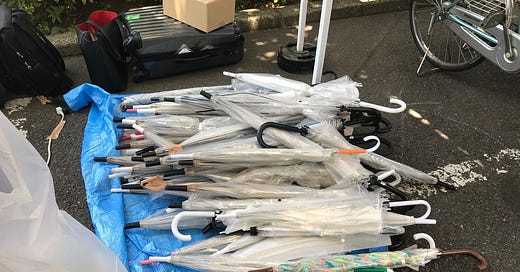3rd February 2021 | Economics, Circular
The end of economic policy; Inside the circular economy in Japan
Welcome to Just Two Things, which I try to write daily, five days a week. Some links may also appear on my blog from time to time. Links to the main articles are in cross-heads as well as the story.
#1: The end of economic policy
Chris Dillow made an interesting observation on his Stumbling and Mumbling blog the other day: British politicians don’t talk much about economic policy any more. Although the detail in his piece is about British politics I suspect the insight applies more widely.
Partly it’s a sign that even if you get economic policy right, the effects may be slow, or non-existent. There are plenty of things you could fix (food poverty, low wages, housing, etc) with simpler policy ideas. I’d say it’s also a sign that we’re on the cusp of a transition from one set of economic ideas to another, and very few politicians have caught up with this transition yet.
But it also reflects a decline in the importance of economic growth as a policy objective, the long-tern decline in economic growth rates—and the fact that there are significant economic interests who get on just fine without economic growth:
As Brett Christophers has described, the economy is dominated by rentiers. Their wealth depends less upon revenue growth and more upon maintaining and securing rights to assets, sometimes via cronyism. It’s not just companies for whom this is true. Many retired pensioners with expensive houses are in the same position…. Fordist capitalism required a large and growing mass market; rentier and financialised capitalism do not.
One of the consequences of a decade of quantitative easing, which has flooded the world with cheap money, is that asset prices are high—and these would likely decline with growth-oriented policies. And maybe capitalists don’t need growth after all:
Traditionally, Marxists have thought that capitalists need economic growth. Which is true of capitalism operating within markets. But it is not true of all types of exploiters: feudal lords did perfectly well for themselves in stagnant economies.
Productive capitalists need growth. Extractive capitalists can get by just fine without it. Which is one reason why there is increasing interest in the problem of monopoly power, especially in the US.
#2: Inside the circular economy in Japan
I must have been talking to clients about the circular economy since the early 2000s. As defined in the book Cradle to Cradle, it is a production system in which all by-products from making things (and at end of life) either go back into the earth as biological nutrients or become “technical nutrients”, or raw materials—preferably upcycled—for new production processes.
The thing is, it’s hard to do in practice, and not just for technical reasons. It requires a complete redesign of production processes. It needs end of life management, either through a continuing customer relationship or an active municipality. And it requires businesses to remake their value chains to hook up with companies that can use their by-products as inputs.
So given that it’s hard, it’s always good to come across accounts of actual progress, somewhere, even when it underlines the difficulties. Here’s a good account a conference on some Japanese practice from Medium by Mariko McTier:
Akira Sakano joined us from Kamikatsu, a small town in Tokushima Prefecture that has become known internationally as Japan’s ‘Zero Waste Town’. Akira is Chair of the Board for the nonprofit Zero Waste Academy (ZWA)… one of the key insights ZWA provides is the makeup of the 20% of waste that cannot be recycled — either because the necessary recycling technology doesn’t exist, or because it is too expensive. For example, an astonishing 20% of the unrecyclable waste is made up of single-use diapers.
Materials are also critical. Recycling is not enough: paper and plastic can only be reused so often. A US company, Terracycle, which specialises in difficult-to-recycle materials has expanded into Japan, but is also developing an initiative called Loop’, partnering with big packaged goods brands.
The initiative uses a collect-and-refill model that replaces disposable with reusable packaging that is made from materials that (unlike plastic and paper) maintain 100% of their value when recycled, such as glass and stainless steel.
j2t#023
If you are enjoying Just Two Things, please do send it on to a friend or colleague.



